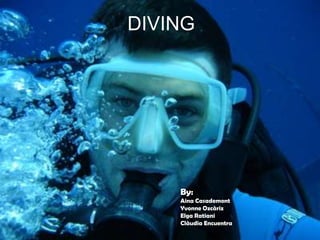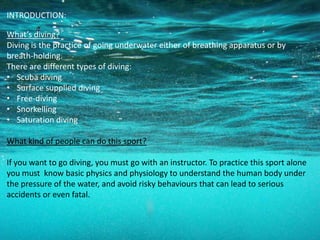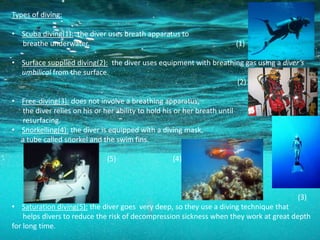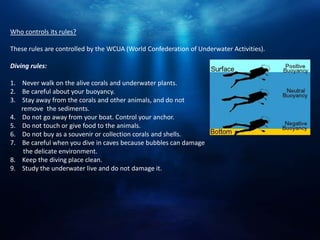Diving is a sport that involves going underwater either without breathing apparatus by holding one's breath or using scuba gear. There are several types of diving including scuba, free diving, snorkeling and more. Diving requires equipment like a wetsuit, scuba set, dive computer and more. It can be enjoyed as a hobby to see underwater life or professionally for tasks like construction. Diving is governed by rules to protect the underwater environment. It carries risks like decompression sickness if surfacing too quickly from depth and pulmonary overinflation. Overall, the group found researching and presenting on diving an enjoyable way to learn about the sport and underwater world.



















